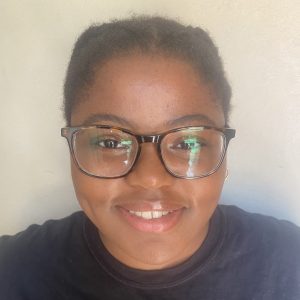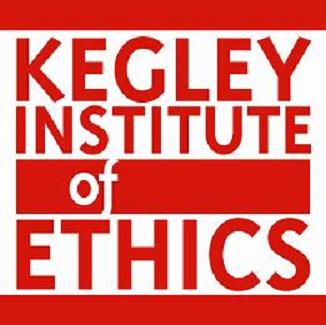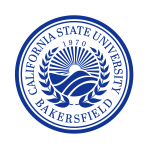Reflections on ‘Disability Justice and the Future of America’
Submitted by Chidinma Okey-Dike, 2021-22 KIE Student Fellow
 On September 29, 2021, the Kegley Institute of Ethics partnered with Kaiser Permanente to host an event titled ‘Disability Justice and the Future of America: Lessons from Covid-19,’ which featured a guest speaker who has dedicated his career and life to fighting against the injustice and inequalities that people with disabilities face. The full event can be viewed on the KIE YouTube page here.
On September 29, 2021, the Kegley Institute of Ethics partnered with Kaiser Permanente to host an event titled ‘Disability Justice and the Future of America: Lessons from Covid-19,’ which featured a guest speaker who has dedicated his career and life to fighting against the injustice and inequalities that people with disabilities face. The full event can be viewed on the KIE YouTube page here.
The guest speaker was Dr. Joel Michael Reynolds, Ph.D., who is an Assistant Professor of Philosophy and Disability Studies at Georgetown University. He is also a senior research scholar in the Kennedy Institute of Ethics at Georgetown and a senior advisor to the Hastings Center, a top bioethics research institute. Dr. Reynolds is a leading scholar in disability studies, the founder and co-editor of The Journal of Philosophy of Disability, and the author or editor of six books on topics in Disability Studies, including The Life Worth Living: Disability, Pain, and Morality, which is coming out in March of 2022. This event was moderated by Dr. Nate Olson, who serves as both the associate director of the Kegley Institute of Ethics and an associate professor of Philosophy at CSUB. Reynolds also addressed questions from Dr. Andrea Yanez, a family medicine physician and the physician champion for equity, inclusion, and diversity for Kaiser Permanente Kern County, 2021-2022 KIE student fellow Chidinma Okey-Dike, and the audience at the event.
Dr. Reynolds spoke about how his work arises from his experience with his family, especially his brother Jason, being saved by, but also running into certain issues in healthcare. He explained that the disability justice framework is one of the most promising frameworks to address the problem facing the world today. Dr. Reynolds stated that there is a fraught relationship between disability and assumptions concerning the quality of life, especially in health care and society. He shares that ableism is a contributing, if not leading, cause of disability issues in health care because it leads practitioners to undervalue, misinterpret, and prejudge the lives and testimony of disabled people. Dr. Reynolds went on to elucidate that the pandemic has taught us that we need a constitutional approach to disability rights, universal access to basic goods, basic health care, and education, and we must undo our mass system of inequality if we are to provide truly equitable care and the possibility for a just system. The key thing to remember is that “disability is everywhere,” but what the disability justice framework has taught us about Covid-19 is that there must be a systems level approach to change because the failure we have experienced and continue to experience primarily results from a highly unequal and unjust society, which we must try to make more just.
In response to a two-part question regarding what types of changes need to be made towards the medical education and health care system to improve the acceptance of disability within our communities, Dr. Reynolds stated that there needs to be a change with the system because the demands that are placed on physicians and health care workers is a perfect example of ableism. The demands in medical education negatively impact people’s mental and physical health, which excludes people with disabilities that want to become physicians, surgeons, or nurses. When addressing the second part of the question regarding any changes he has seen due to his work with disability studies, Dr. Reynolds emphasized that there is still a lot more work to be done; however, the pandemic started the conversation about disability rights all around the world, especially in the biomedical field and the United Nations.
This event was very insightful and informative about the need for disability justice within our community and society since the beginning of the pandemic, which was provided by the excellent perception and works of Dr. Joel Michael Reynolds.





